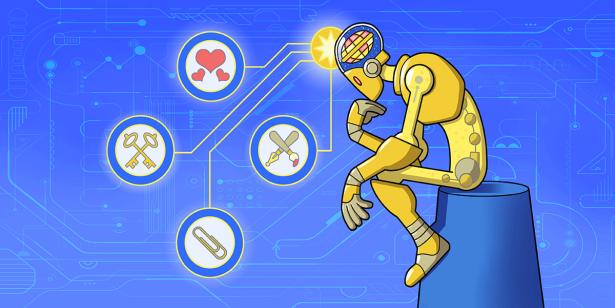- AI Reflections
- OpenAI Opens to the Military
- The AI Fraud Act
- Existential Risk
- We Made Them Look
- 4700 Art Styles
- A.I.’s Groundhog Day
- Mehdi Hasan’s Exit From MSNBC
- DeSantis’s Media Mishaps
- LA Times Walkout
By Julia Lesage
Jump Cut
ChatGPT was released, grew rapidly in its user base, drew many critics, and the nation saw a massive subsequent venture-capital investment in this kind of AI. On a personal level, I saw how ChatGPT suddenly reshaped the work life of many writers and teachers around me, and the strikes in Hollywood made it clear that as a media professional I had to learn more about AI.
By Brett Wilkins
Common Dreams
ChatGPT maker OpenAI this week quietly removed language from its usage policy that prohibited military use of its technology, a move with serious implications given the increase use of artificial intelligence on battlefields including Gaza.
By Corynne McSherry
Electronic Frontier Foundation
If Congress really wants to protect performers and ordinary people from deceptive or exploitative uses of their images and voice, it should take a precise, careful and practical approach that avoids potential collateral damage to free expression, competition, and innovation. The No AI FRAUD Act comes nowhere near the mark.
By Kelsey Piper
Vox
A survey of machine learning researchers found half of the researchers said they considered it overwhelmingly likely that powerful AI would lead to human extinction. In what other field do moderate, middle-of-the-road researchers claim that the development of a more powerful technology — one they are directly working on — has a 5 percent chance of ending human life on Earth forever?
By Silvia Ayuso
El País
Marathon closed-door negotiations in December were the longest of this type of meeting in the history of the EU, and allowed the world’s first complete artificial intelligence law to be agreed. It is a regulation that seeks above all to ensure that foundational models of generative artificial intelligence (AI) that may pose a systemic risk do not violate fundamental rights.
By Marlon Ettinger
Daily Dot
A filing in a lawsuit against two artificial intelligence image generation companies includes a list of around 4,700 names of artists and art styles which were included in the training corpus for Midjourney. The lawsuit, which was first filed in the beginning of 2023, is a class action suit that claims that AI image generators “are 21st century collage tools that violate the rights of millions of artists.”
By Jane C. Hu
Slate
While the rush to do something about A.I. might feel new, it’s really just a continuation of a yearslong conversation about the unintended consequences and harms of algorithms. A.I. is just the latest “genie” that won’t go back into the bottle, the newest technological point of no return.
By Nathan J Robinson
Novara Media
American journalists should be united in defending one of their own and in protecting dissident voices. It’s worth reflecting on what we lose by the departure of Hasan from MSNBC. Think of the interviews that won’t be done, the questions that won’t be asked, the lies that will go unchallenged. Hasan’s work was important. It needed to be done. He’s also not the only one being punished.
By Jon Allsop
Columbia Journalism Review
DeSantis’s pivot to greater engagement with the mainstream media would run up against self-inflicted limitations. Media-bashing was so central to his political appeal that he couldn't just cast it aside. Meanwhile, the voters receptive to his going on CNN were never likely to embrace his hard-right message, while those receptive to his message were never likely to embrace DeSantis going on CNN.
By Ted Johnson
Deadline
Los Angeles Times journalists conducted the first newsroom union work stoppage in the 142-year history of the newspaper, one day after management disclosed that substantial layoffs could be coming amid a widening budget deficit.


Spread the word